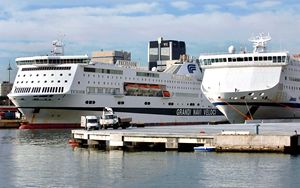(Finance) – “Analyzing and improving the ability of self-driving ships to maintain prescribed routes even in adverse conditions”, is what we learn on a new study, published in the journal “Ocean Engineering”and created by an international team led by Professor Daejeong Kim of the Division of Studies on the Convergence of Navigation at the National Korea Maritime & Ocean University.
The growing popularity of autonomous vehicles has stimulated significant research interest in maritime sector, in particular for the development of surface autonomous maritime vessels (MASS). An essential requirement is the ability to follow a predetermined route at sea. Any deviation from this route, for example, due to adverse weather conditions, entails serious risks such as collisions, or other types of accidents. It is therefore desirable that autonomous ships have a mechanism to effectively resist deviations.
THE Current methods are unable to capture the complicated interactions between the hull, propeller, rudder and external loads of ships, leading to inaccurate estimates of ship performance. To address the problem, the international team behind the new study analyzed the performance of MASS using a free-running computational fluid dynamics (CFD) model combined with line-of-sight (LOS) guidance, at low speeds in adverse weather conditions. The team used CFD-based analysis on the popular KRISO container ship model equipped with the LOS autonomous driving system.
The experiments were modeled to simulate different adverse weather conditions. The study allowed us to obtain more precise results compared to traditional analysis models.
